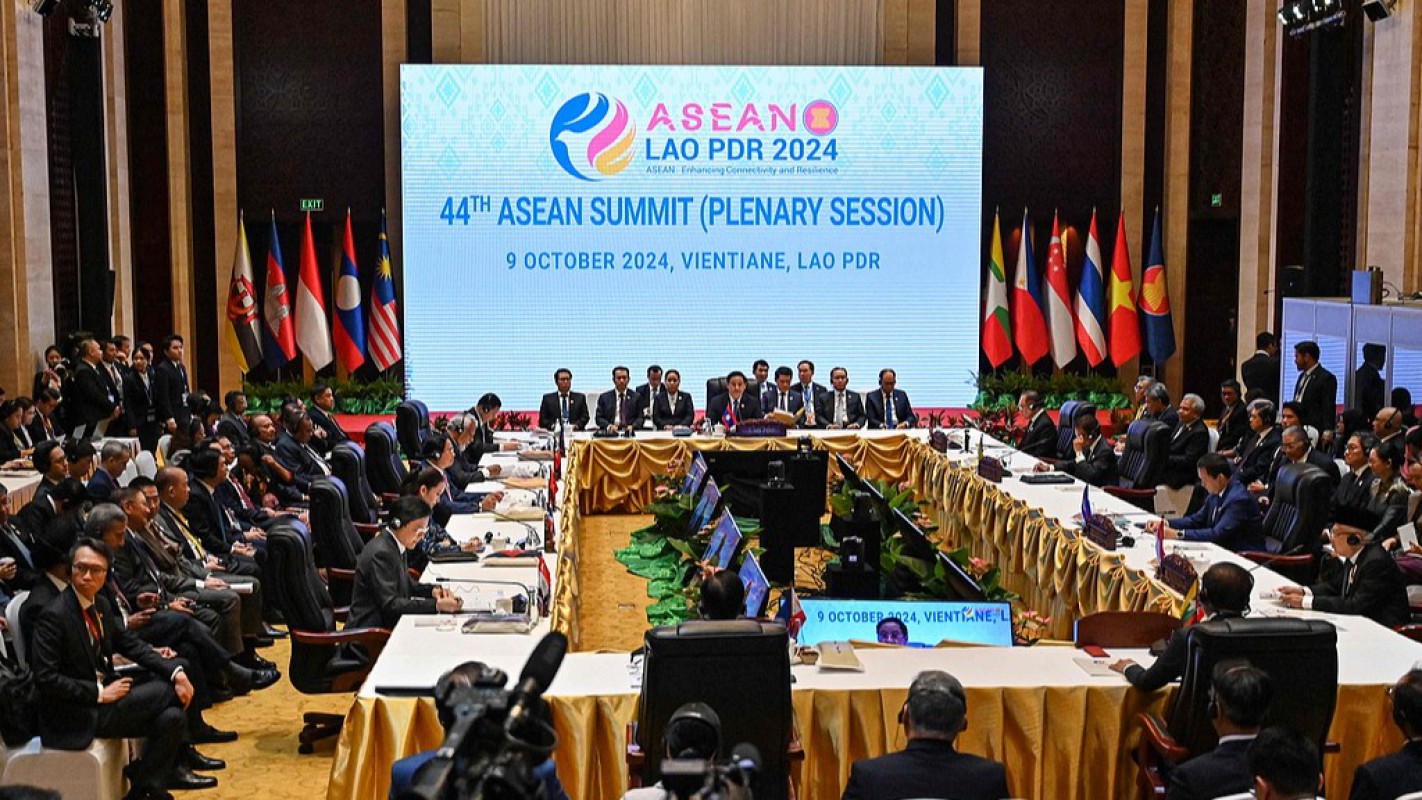ASEAN constructively approaches in seeking stability, peace in Myanmar's political landscape

1291

Tin Zar Lynn (NP News) - Oct 15
In a draft statement from the 2024 ASEAN Summit regarding with Myanmar crisis, ASEAN leaders condemned attacks on civilians and “urged all parties involved to take concrete action to immediately halt indiscriminate violence”. This emphasis on urging all stakeholders—not just the military—marks a significant aspect of their approach. This reflects an acknowledgment of the complex dynamics in Myanmar, where multiple actors are involved in the violence.
This unified recommendation emerged from the discussions at the 44th and 45th ASEAN Summits, held in Laos from October 6 to 11. Notably, a representative from Myanmar attended the regional summit for the first time in three years, following the State Administration Council's assumption of power and ongoing civil conflict. ASEAN has barred Myanmar's leaders from its summits, while the Myanmar government has declined to send "non-political representatives" in their place. This impasse highlights the ongoing tensions and challenges in engaging with Myanmar amidst the continuing conflict and political crisis.
Since the declaration on the State of Emergency in 2021, the Myanmar military and various armed groups have been engaged in a civil war. Due to that violence, the causalities rate become more than 57,000 and an estimated 2.7 to 3 million internally displaced individuals and approximately 113,700 refugees.
ASEAN has played an active role in addressing Myanmar crisis since 2021. The organization has sought to facilitate dialogue among various stakeholders, emphasizing the importance of a peaceful resolution and the restoration of democracy. ASEAN has initiated the Five-Point Consensus on April, 2021, which calls for an immediate cessation of hostilities, humanitarian assistance, and inclusive dialogue. The engagement of ASEAN reflects its commitment to regional stability and the well-being of the Myanmar people amid ongoing challenges.
However, more than three years have passed since the issuance of the Five-Point Consensus (5PC), and little meaningful progress has been made toward achieving a peaceful resolution to the conflict in Myanmar.
The ASEAN leaders continue to strive to find solutions to the Myanmar conflict through various potential avenues. In this context, Thailand has offered to host informal consultations on efforts to end the crisis in Myanmar in December, according to the Thailand Ministry of Foreign Affairs.
In addition, Thailand has actively facilitated aid through humanitarian corridors to support those affected by the conflict in Myanmar. By establishing these corridors, Thailand enables the safe passage of humanitarian assistance, allowing NGOs and international organizations to deliver vital supplies such as food, medical care, and shelter to displaced individuals and communities in need. This initiative reflects Thailand's commitment to alleviating the suffering of those impacted by the ongoing crisis and its role in promoting regional stability through humanitarian efforts.
Regarding the Myanmar crisis, Malaysian Foreign Minister Datuk Seri Mohamad Hasan expressed a desire to negotiate with his Myanmar counterpart. As the next ASEAN chair, Malaysia aims to facilitate dialogue, emphasizing that while Myanmar previously resisted engagement, the current government is now open to discussions with various stakeholders. He highlighted that resolving issues in Myanmar necessitates inclusive dialogue, as the involved groups are strong and cannot be effectively addressed through one-sided talks.
It is encouraging to see ASEAN leaders actively initiating and participating in efforts to find solutions for the Myanmar crisis. However, it’s important to recognize that resolving the political turmoil in Myanmar is complex and cannot be achieved solely through ASEAN involvement or within a limited timeframe. The deep-rooted issues and diverse interests among various stakeholders require sustained engagement and a multifaceted approach for meaningful progress.
Kao Kim Hourn, the current Secretary-General of ASEAN stated, “We need time and patience. Myanmar is such a complicated and complex issue. We should not expect a quick fix.” This underscores the need for careful consideration of the various dynamics involved in the Myanmar conflict, which cannot be resolved swiftly. ASEAN should continue to advocate for "inclusive political dialogue" among all conflicting parties in Myanmar, as highlighted by Kao Kim Hourn. This approach is crucial as it reflects the Myanmar government's invitation to all armed groups for dialogue, fostering peace and political inclusion. If ASEAN's approach effectively aligns with Myanmar's peace track, their initiatives are likely to become more effective and constructive in the future.